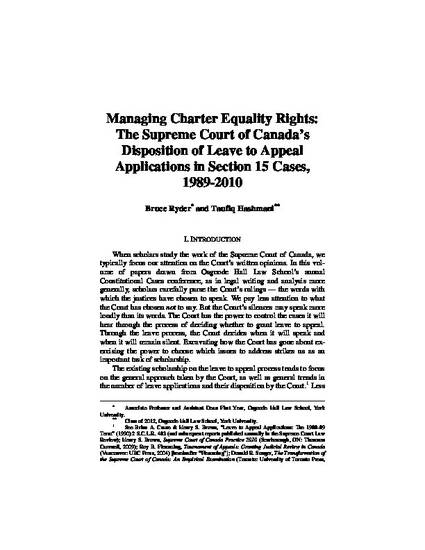
Through a study of the Court’s disposition of 177 leave to appeal applications in section 15 cases since 1989, the authors examine the role of the Supreme Court of Canada in guiding the development of Charter equality rights jurisprudence. The data reveal that the grant rate on leave applications in section 15 cases has declined markedly since the late 1990s, reaching historic lows in the past five years. The grant rate in section 15 cases has declined more precipitously than the grant rate in Charter cases as a whole, even though section 15 jurisprudence remains in an unsettled and unsatisfactory state, and even though the Court continues to be presented with compelling applications for leave to appeal in section 15 cases. When the Court has granted leave in section 15 cases in recent years, it has dismissed section 15 claims perfunctorily in a majority of cases as other legal issues took centre stage. The data also reveal that the chances of being granted leave in section 15 cases, and of succeeding on appeal to the Supreme Court, are much higher for governments. The authors conclude that the Court has played a significant role, through its management of the appeal process, in directing a restricted scope for Charter equality rights.
Available at: http://works.bepress.com/bruce_ryder/39/
